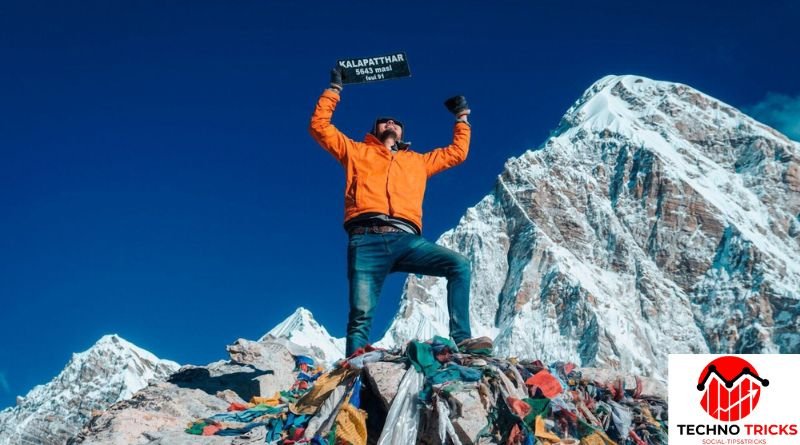Sherpa Experience: How They Enhance Your Everest Base Camp Trek
The Everest Base Camp trek is one of the most iconic trekking routes in the world, attracting adventurers from every corner of the globe. While the allure of Mount Everest itself is the primary reason for many trekkers, another key factor that enhances the experience is the Sherpa guides who accompany them along the journey. The “Sherpa Experience” is something that cannot be overstated. Sherpas are the heart and soul of Everest treks, providing not just guidance but also invaluable insights, safety, and support. In this article, we’ll delve into how the Sherpa experience elevates the Everest Base Camp trek, making it a memorable and safe adventure.
The Role of Sherpas in the Everest Base Camp Trek
Sherpas are renowned for their mountaineering skills and knowledge of the high-altitude Himalayas, particularly in Nepal. The term “Sherpa” refers to an ethnic group native to the mountainous regions of Nepal, known for their ability to live and work in extreme conditions. However, the word has also become synonymous with the guides, porters, and climbers who assist trekkers on expeditions in the Himalayas.
For trekkers heading to Everest Base Camp, Sherpas are more than just guides; they are lifelines. The high-altitude terrain can be unpredictable and challenging, especially for those who are not accustomed to the extreme conditions. Sherpas, with their deep-rooted knowledge and experience of the region, are able to navigate the treacherous paths, ensuring trekkers stay safe and on track.
Sherpa Expertise in High-Altitude Trekking
One of the key ways Sherpas enhance the Everest Base Camp trek is through their expertise in high-altitude trekking. The altitude in this region can be daunting, with the Everest Base Camp sitting at an impressive 5,364 meters (17,598 feet). At these heights, the air is thinner, which can lead to altitude sickness. Trekking in such conditions requires a unique set of skills and knowledge that Sherpas possess.
Sherpas are trained to recognize the symptoms of altitude sickness and know how to respond quickly. They are often the first to spot signs of distress, such as headaches, dizziness, or nausea, which can indicate that a trekker is struggling with the high altitude. By identifying these symptoms early, Sherpas can take preventative measures to ensure the safety of the trekker, such as recommending rest days, adjusting the pace, or guiding trekkers to lower altitudes if necessary.
Furthermore, Sherpas are familiar with the most effective strategies to help trekkers acclimatize to the altitude. They are experts in pacing the trek to avoid overexertion, ensuring that trekkers ascend gradually and avoid rapid altitude gains that can lead to sickness. Their experience allows them to judge the perfect balance between progress and safety.
Sherpas: Guardians of Local Culture and Heritage
Beyond their trekking skills, Sherpas offer an immersive experience by introducing trekkers to the rich culture and heritage of the Khumbu region. Sherpas are deeply connected to their land, and their role as cultural ambassadors allows trekkers to gain a deeper understanding of the region’s traditions, values, and customs.
During the trek, Sherpas often share stories about the history of the Everest region, including the myths and legends surrounding Mount Everest itself. They may also introduce trekkers to local practices such as the Buddhist rituals performed in the monasteries and villages along the trail. Their knowledge of these practices adds an enriching layer to the trek, allowing trekkers to experience the spiritual and cultural aspects of the region.
For many trekkers, the Sherpa experience is not just about the physical journey but also about connecting with the people of the Himalayas. Sherpas often invite trekkers to their homes or offer insight into their way of life. This interaction fosters a unique bond between the trekkers and the Sherpas, enriching the overall experience and creating lasting memories.
Sherpas: The Backbone of Logistics and Support
Another crucial aspect of the Sherpa experience is their role in logistics and support. Trekking to Everest Base Camp is no easy feat, and it requires careful planning and coordination. Sherpas are experts in managing the logistics of the trek, from organizing permits to ensuring that the necessary equipment is available.
In addition to guiding trekkers, Sherpas often serve as porters, carrying heavy loads of gear, food, and supplies. This allows trekkers to travel with lighter loads, which can make the trek less physically demanding. Sherpas have an incredible ability to carry weight at high altitudes, often trekking at a faster pace than the trekkers themselves. This ensures that the journey runs smoothly, with all the necessary resources in place when needed.
Their role in logistics extends beyond just carrying equipment. Sherpas are responsible for managing the accommodation, ensuring that trekkers have comfortable and safe places to rest along the way. They work closely with local teahouses and lodges to arrange meals and ensure trekkers’ comfort. This attention to detail ensures that trekkers have a smooth, worry-free trek, allowing them to focus on the journey itself.
The Emotional Support of Sherpas: More Than Just Guides
Trekking to Everest Base Camp is a physically and mentally demanding experience. The challenging terrain, unpredictable weather, and the sheer physical exertion required can take a toll on trekkers, especially those who are not accustomed to such conditions. Here, the emotional support provided by Sherpas becomes crucial.
Sherpas are known for their warm and welcoming nature. They often form personal bonds with trekkers, providing encouragement and motivation when things get tough. Their positive attitude and reassuring presence can make a huge difference when trekkers are feeling fatigued or overwhelmed.
Many trekkers cite the support of their Sherpas as one of the most rewarding aspects of the Everest Base Camp trek. Whether it’s a kind word, a shared laugh, or simply offering a steady hand on a difficult stretch of trail, Sherpas are there to help trekkers push through difficult moments. This emotional support fosters a sense of camaraderie and teamwork, turning the trek into a shared experience rather than an individual challenge.
Safety and Risk Management: Sherpas as Lifesavers
Safety is paramount on any high-altitude trek, and the Sherpa experience is essential in ensuring trekkers’ safety throughout the journey. The Everest Base Camp trek, while considered moderate in difficulty, still presents a range of risks, from altitude sickness to accidents on rugged terrain. Sherpas are trained to handle emergencies and are well-versed in first aid, ensuring that trekkers have immediate support in case of injury or illness.
Sherpas are also experts in weather patterns and can assess when conditions are unsafe for trekking. They can make decisions about when to delay or postpone a trek based on changing weather, ensuring that trekkers are not exposed to dangerous conditions. This level of foresight and preparation can be life-saving, as weather in the Everest region can change rapidly, with storms or snowfalls making trekking dangerous.
Their ability to manage risk effectively allows trekkers to push their limits while maintaining a sense of safety. The presence of Sherpas provides peace of mind, knowing that they have an experienced guide who can handle emergencies and ensure their well-being.
Conclusion: Why the Sherpa Experience is Essential to Your Everest Base Camp Trek
In conclusion, the Sherpa experience is an integral part of the Everest Base Camp trek, enhancing it in ways that go far beyond simply being a guide. From their deep knowledge of the region and its culture to their expertise in high-altitude trekking and logistics, Sherpas make the journey safer, more enjoyable, and deeply meaningful.
Without the Sherpas, the Everest Base Camp trek would not be the same. Their skills, hospitality, and unwavering support elevate the trek, turning it into an unforgettable adventure. Whether you’re trekking to the base camp for the challenge or to experience the majesty of Everest, the Sherpa experience ensures that you have a journey that is as rewarding emotionally as it is physically.
So, the next time you set out on the Everest Base Camp trek, remember that the Sherpas are not just your guides—they are the reason why this incredible adventure can be experienced in the safest, most fulfilling way possible.
May Also Read:
luxury villas provence le collectionist




